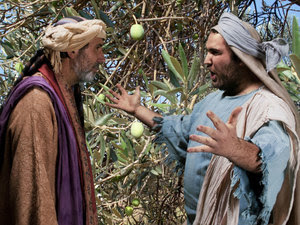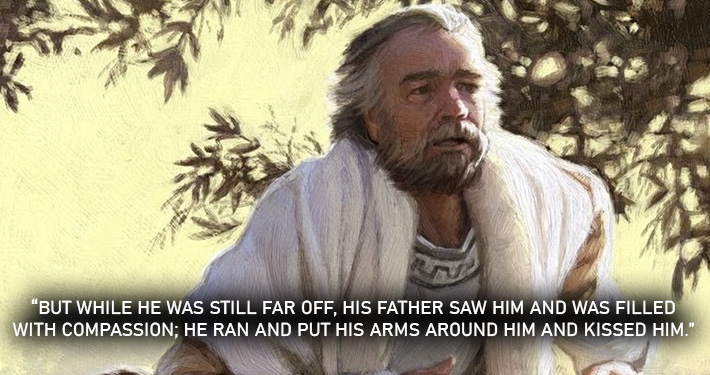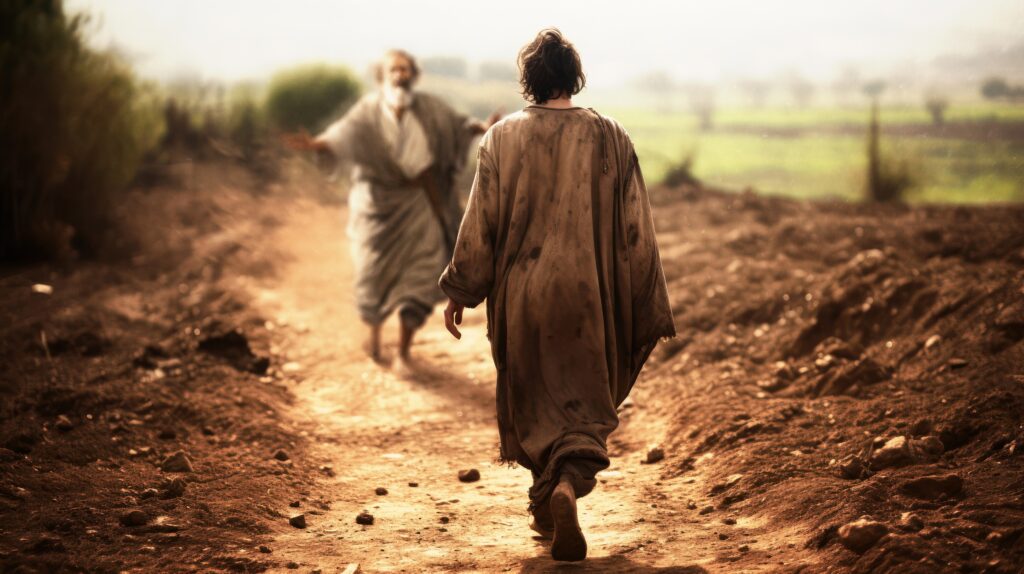“The older brother was angry and wouldn’t go in. His father came out and begged him, but he replied, ‘All these years I’ve slaved for you and never once refused to do a single thing you told me to. And in all that time you never gave me even one young goat for a feast with my friends. Yet when this son of yours comes back after squandering your money on prostitutes, you celebrate by killing the fattened calf!’ – Luke 15:28-30 NLT
While speaking at a women’s retreat in Virginia, I had an interesting experience that I had never had before then, and I have not had since then.
I spoke five times that weekend and started with the story of God finding me as a poverty-stricken, abused little girl. When sharing my story, I do not spend much time on the abuse, but a lot of time on the healing journey God brought to my life.
After sharing my story of God’s grace, healing, and goodness to me, I shared a bit of follow up to the story. I told of how my biological father was led to Jesus by my husband. Unexpectedly, my father died the next day. I talked about God’s grace even to the evilest among us.
At lunch time, a woman came up to me and asked if I would be willing to stop by for just a few minutes to chat with her and her three roommates. She shared that one of her friends had come out of a similar situation and just wanted a few minutes to talk with me.
I stopped by the room to chat with the women. The woman who had a similar childhood as I did, proceeded to thank me for modeling that one can be healed from childhood trauma. She then stated that she did not like the part of my father being accepted by Jesus. That was totally unfair after the life he lived. She actually hoped he would not be in heaven after all the pain and trauma he had inflicted on his children. She sure hoped he would not be in heaven.
The above story is a perfect example of the elder brother in the story of the prodigal.
Jesus told the story of the reckless, selfish son who took his inheritance, left to live his own life, and squandered all of his money. He came to his senses and headed home determined to ask for the job of a servant. At least he would have food in his belly. Jesus then proceeded to tell of a loving, welcoming father who rejoiced and threw a party to celebrate that his son had returned. It seems that it should be the end of the story. The son is home. The father rejoices.
But Jesus does not end the story there. There is another son in this family who was working in the field. As he heads home, he hears music and dancing. He asks one of the servants to tell him what is going on. The servant responds, “Well, your brother is back, so your father is throwing a party, fatted calf and all, to welcome him and celebrate.”
The elder son is not at all interested in attending such a party. If he were a teenager, he would stomp up the stairs to his room and slam the door, making sure everyone in the house could hear every stomp as well as the slam.
The father is not happy about this. He goes to the older son and pleads with him. “Come on, it is right that we celebrate! Please join us!” And the older son gives his father a little speech too – more like a piece of his mind. “Dude, I have been working like a slave for you for years. I have never disobeyed you. You have never even given me a young goat so I could throw a party for my friends.” The older brother is resentful, and also more than a little envious that his brother got to go off and have a good time and does not even get punished for it.
Notice the elder brother talks about all of his work for the father, not his love for the father and his father’s desires. Perhaps his relationship with the father is that of works for acceptance, not of love. Perhaps he feels a bit self-righteous. “Why are you celebrating him? I am the one who lived the right way and did the right things. He should not be celebrated.”
This blog was a little hard to write because I see myself as I used to be. I know all too well the attitude of self-righteousness the older brother demonstrated. I know what it is to live a graceless life toward those who did not meet my standard. I know what it is to labor for God but have little joy. I was the self-righteous older brother. I know personally how self-righteousness robs the soul of joy. I had to be delivered from a works-oriented relationship with God and let Him guide me into a love relationship with Him. I finally understood that Jesus on the cross was dying not for the righteous but for sinners. Jesus loved all people.
The Church is comprised of both kinds of sons and daughters. There are the ones who “stayed home” and “did what was right” but did not always love their father or their brothers and sisters in Christ. There are also those who have claimed the Name of Jesus but went far away from their relationship with the Father but found their way back to Him. God loves all His children.
Christian author James Breech says of this story, “When there is no ending, there is no final judgment.” Jesus leaves the judgment up to his listeners – the publicans and sinners who might’ve had a hard time believing in the unconditional, generous, and welcoming love of God, and the Pharisees and scribes who didn’t want to believe in it, because they would rather limit God’s mercy to those whom they felt had “earned” it. We get to imagine the ending.
Hundreds of years later, the ending of the story is still left up to the reader. Where do we see ourselves in this story – the passionate but rebellious younger son, the “obedient” but resentful older son, or the unconditionally loving, generous, and welcoming father? And what does God want us to see in the story? Are we being called to move to a grace-filled place in our own stories? I want to be more like the Father. That will take care of everything else.




